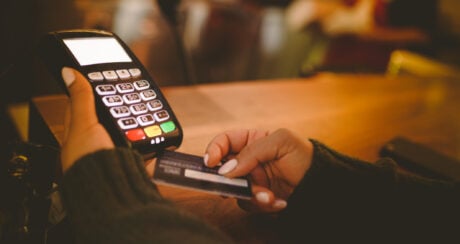Credit cards aren’t inherently good or bad. It’s how you use them that matters. The same card can be a positive tool for one person but a debt-accumulating anchor for another. But, when used responsibly, a credit card can open up a world of freedom, flexibility, emergency ‘cash’ reserves and rewards.
Follow these guidelines to make your first credit card an asset to your finances.
1. Study how your card works
Take the time to understand the essential features of your credit card, including the
- Credit limit
- Interest rates
- Interest-free period
- Fees
- Minimum monthly payment
- The number of days in your statement cycle.
Knowledge is power, especially when it comes to finances. To study up, set aside monthly ‘finance sessions’ to review your income, expenses, budget and card statements. Make it fun and enjoy a treat, like a lolly or glass of wine, to reward your good behaviour. Take this time to benchmark how competitive your card is versus different products, including other types of credit cards.
Responsible credit card use requires a little proactivity — an hour or two a month is usually enough.
» MORE: How to activate a credit card
2. Avoid interest charges
You can avoid unnecessary interest charges by paying your bill in full every month. Once your credit card payment clears your balance, you won’t accumulate any interest on new purchases until the next due date. Stick to this habit every month to continue avoiding interest charges. This way, you can enjoy the benefits and flexibility of using your card without worrying about calculating interest charges.
» MORE: Are there zero-interest and interest-free credit cards?
3. Build your credit rating
Being debt-free doesn’t automatically mean you have a good credit score. Using a card responsibly by making timely payments will prove your ability to manage both good and bad debt.
Know what affects your credit score — like applying for multiple credit cards — and leverage various types of credit (mortgage or car loan) to continue improving your credit rating.
Shifting your perspective — seeing a credit card as a tool, not a trap — you can leverage it to empower your finances and future.
» MORE: What to know about credit reports in Australia
4. Make more secure purchases
A credit card offers more robust purchase protection compared with a debit card. For example, many cards come with protections covering most purchases made with the card, plus security perks. This includes:
- Purchase protection to cover items you’ve bought anywhere in the world
- Extended warranty to lengthen the original warranty on eligible products, often for up to 12 months
- Fraud detection
- Chargebacks to refund and reverse certain transactions
- The ability to lock, block or freeze your card
- Unique card numbers.
These added protections are a huge benefit — especially if you shop online — as scams are rising.
» MORE: Lost credit card? Here’s what to do
5. Access awesome rewards and perks
The best credit cards offer generous rewards and perks, such as
- Big sign-up bonuses
- Cashback rewards
- Points redeemable for travel or gift cards
- Frequent flyer program benefits
- Travel insurance
- Airport lounge access.
These extras are where credit cards deliver tangible benefits, not just financial flexibility and buyer protections.
Building up significant points may take some time, but the resulting savings are worth it. You can quickly start reaping the benefits by utilising welcome points and arranging a strategy for using your rewards card. During your regular financial planning sessions, consider ways to earn more points and get the most out of your rewards. That’s where finances get fun.
» MORE: What is a travel credit card?
6. Enjoy peace of mind with a line of credit
It can be disheartening to pull from your savings or emergency fund if you’re in a bind. Fortunately, a credit card offers a credit cushion. Whether you need to use your credit card to pay rent, buy groceries or withdraw cash from an ATM, it’s reassuring to know you’ll be able to pay for most unplanned expenses.
Just know the cost of a cash advance before using your card to take out cash. And, as always, take the time to assess whether you’re paying for essentials or just indulging in discretionary spending.
» MORE: 16 ways to find fast cash when you need money
7. Use your buying power for large purchases
Think of your credit card as an enabler, not a hindrance.
Let’s say you’re looking to buy a new MacBook. It’s typically $3,000, but you’ve seen it on sale for $2,500. You only have $2,000 in savings, so you have two options:
- Wait until you’ve saved the extra $500 and risk missing the sale
- Put it on your card, use the interest-free period, and pay it off in full before the end of the interest-free period.
If you’re confident you can pay off the balance before incurring interest charges, it’s a win-win. You get the new MacBook on the day and save $500. This strategy only works if you’ve built solid financial habits and enjoy the card without paying interest.
Once you develop these money management skills, they’ll support you for life. You’ll have multiple credit cards over the years, with each new product offering you more freedom, flexibility and financial benefits. With proper habits and strategies, your credit card can help build a solid financial foundation that’ll help you achieve your financial goals.
» MORE: How to pay off your credit card
Frequently asked questions about using a credit card
You may incur monthly or yearly account fees even if you don’t have any outstanding debt. Check your bank’s terms and conditions to understand how they treat account inactivity.
If you want to close your card, make sure first to consider whether cancelling your card will affect your credit rating.
DIVE EVEN DEEPER

Personal Loan Vs. Credit Card: What’s The Difference?
Personal loans give you a lump sum for large purchases. Credit cards work better for smaller, everyday expenses.

How Thieves Obtain And Use Stolen Credit Cards
Thieves obtain stolen credit cards through frauds and scams, and then use those card details to withdraw cash, buy items to resell, and more.

Credit Card Companies In Australia
Credit card companies in Australia include payment networks, credit card providers that issue cards, and some airlines or retailers that offer co-branded cards.

What is a virtual credit card?
A virtual credit card uses a randomly generated number tied to an existing account to help make digital payments more secure.

